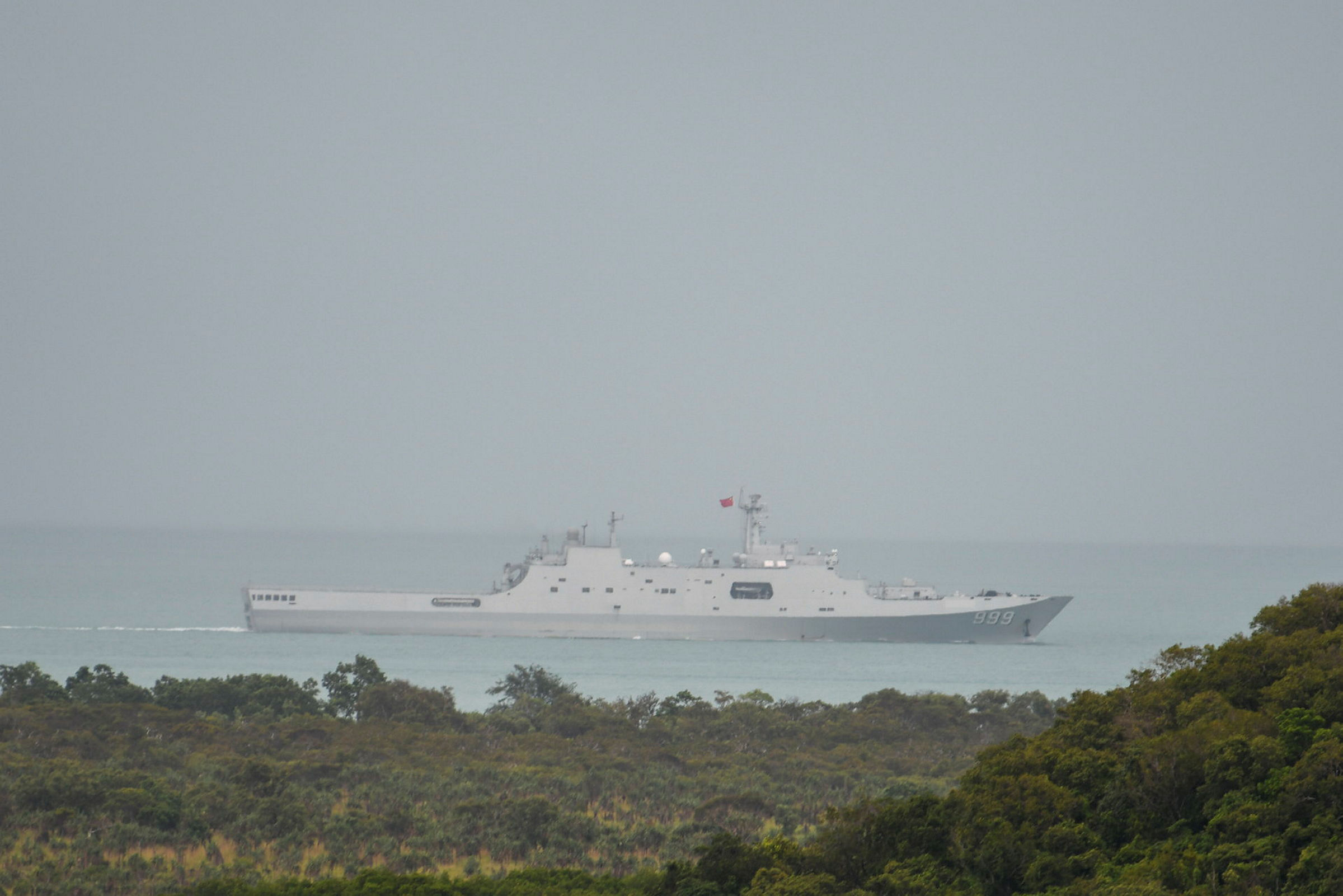Lasing of RAAF patrol aircraft by Chinese warship was ‘unprofessional and unsafe military conduct’

The Australian Defence Force has been goaded into releasing details of an incident in which a Chinese warship hit a Royal Australian Air Force patrol aircraft with a powerful laser.
China has claimed its warship crew acted within international law when the laser was directed at the P8-A Poseidon in the Arafura Sea and suggested the aircraft flew too close to the vessel.
The People’s Liberation Army Navy ships were just to the north of Australia, within its exclusive economic zone, and heading for the Torres Strait on their way to the Coral Sea when the lasing occurred. When details of the episode appeared in the media, Chinese Foreign Ministry spokesman Wang Wenbin accused Australia of maliciously spreading false information.
The ADF responded by releasing a detailed statement with photographs of the warships and a detailed map of their course.
The Poseidon was on a routine surveillance flight over Australia’s northern approaches at 1.35 pm on 17 February and monitoring the warships—a Luyang-class guided missile destroyer and a Yuzhao-class amphibious transport dock vessel—when it was ‘illuminated’ by the laser fired by one of the vessels, believed to be the destroyer. This was strongly condemned by the ADF as ‘unprofessional and unsafe military conduct’ and constituted ‘a serious safety incident’.
The aircraft was approximately 7.7 kilometres from the PLAN vessel and was flying at an altitude of 457 metres.
‘The closest the P-8 flew to the PLA Navy vessel was approximately 4 kilometres,’ the statement said.
‘This is a standard flight profile for RAAF maritime patrol aircraft for a visual investigation of a surface vessel.’
The aircraft acted within international law at all times, the ADF said.
‘Defence conducts surveillance patrols as part of our integrated and layered approach to surveillance of our maritime approaches including the Australian Exclusive Economic Zone.
‘These activities are conducted in a disciplined and safe manner, well clear of surface vessels and in accordance with international law, particularly the United Nations Convention on the Law of the Sea (UNCLOS).’
The Poseidon is equipped with advanced sensors to locate, track and understand air, surface and subsurface contacts. ‘Surveillance activities are conducted using all available surveillance tools including photography, sonobuoys and radio calls to identify maritime and air traffic,’ the ADF said.
Sonobuoys—devices dropped onto the ocean surface to find vessels on or below it and to gather information about them—were released a significant distance ahead of the vessels after the laser incident. These are receiving buoys only and do not pose any hazard to shipping, the ADF said.
No sonobuoys were used before the lasing incident.
Defence said Australia supports and respects the rights of all states to exercise lawful freedom of navigation and overflight in international waters and airspace, but it expects all foreign vessels entering its maritime zones to abide by international law, particularly UNCLOS.
‘Australia has raised its concerns to the Chinese Government about the lasing incident, via senior Australian Defence and DFAT officials liaising directly with the Chinese Embassy in Canberra. Senior diplomatic staff in Beijing have also raised the matter with both China’s Ministry of Foreign Affairs and Ministry of National Defense.’
 Print This Post
Print This Post